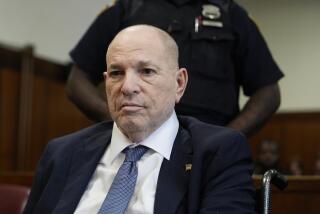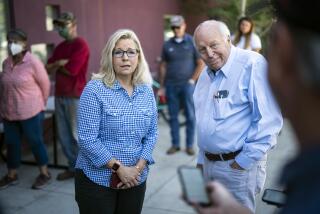Cheney’s Dilemma
Barring unexpected complications from his latest heart disease episode, there is likely no reason that Vice President Dick Cheney cannot return to his duties in the next few days. But the matter of Cheney’s health assumes greater importance and possible concern than it would for previous vice presidents because he is such a pivotal figure in the Bush administration. President Bush and Cheney should give careful consideration to the burden that Cheney should reasonably carry.
Bush was generally correct when he said that Cheney’s decision to enter the hospital Monday afternoon after experiencing chest pains was “precautionary.” In contrast to last November, there was no evidence that he suffered a heart attack. But it was a significant procedure that was performed on his artery Monday. The narrowing or blockage of an artery means that not enough blood and oxygen are reaching a person’s heart. Deprive the heart of enough blood and oxygen, there is a heart attack with damage to the heart muscle.
Great advances are being made in the treatment of coronary artery disease and in preventing heart attacks and repeat heart attacks. Yet as Dr. Jonathan Reiner, Cheney’s cardiologist, explained, the vice president does suffer from chronic heart disease, as do millions of other Americans.
There is little doubt that the 60-year-old Cheney will be raring to get back to a job he obviously relishes. He has key roles as an expert advisor to Bush on subjects ranging from energy policy to national security. He is vitally important as a liaison to Congress, where Cheney once served, and as a former White House chief of staff who knows the inner kinks and quirks of the West Wing. Dick Cheney, alas, begins to emerge as the irreplaceable man in this administration.
Cheney comes across as an unflappable fellow, the sort who keeps a cool head and steady hand when the stress is great. That is a great asset to the president. But daily stress and a very high workload of essential duties are not a prudent combination for a man with Cheney’s health history. Cheney’s doctor insisted he could be perfectly capable of finishing his term “in his fully vigorous capacity.” Yet there is a difference between vigor and capacity. It’s a critical and worrisome difference for the vice president who has made himself indispensable for, and could be the successor to, the commander in chief.
More to Read
Get the L.A. Times Politics newsletter
Deeply reported insights into legislation, politics and policy from Sacramento, Washington and beyond. In your inbox three times per week.
You may occasionally receive promotional content from the Los Angeles Times.










